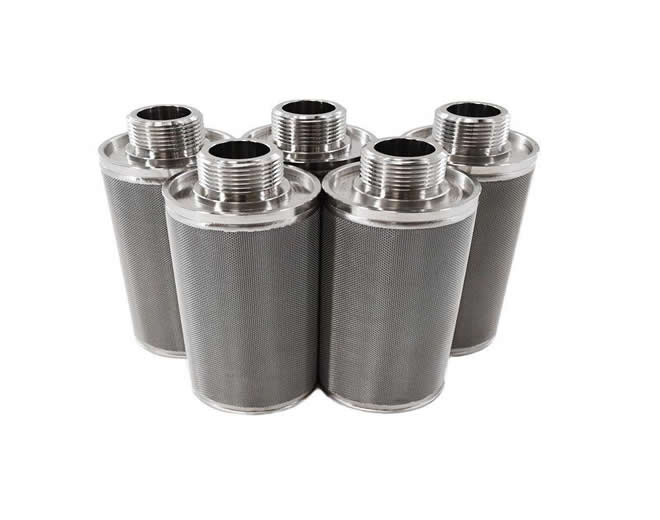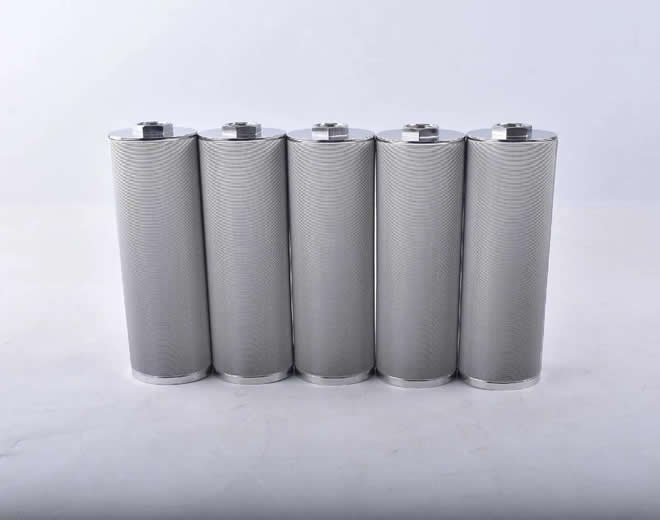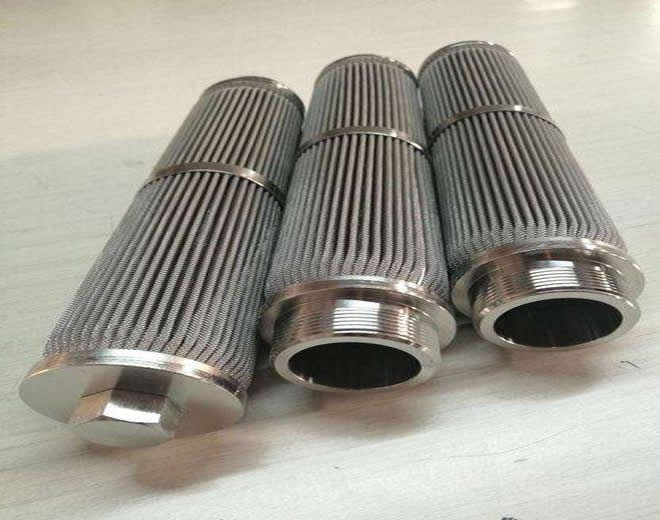A metal filter element is a crucial component in various filtration systems, designed to separate impurities and particles from fluids such as liquids or gases. Unlike traditional filter elements made from paper or fabric, metal filter elements are constructed from durable metallic materials, providing enhanced mechanical strength, thermal resistance, and resistance to corrosive environments. The choice of metal for the filter element depends on the specific application and the type of contaminants to be removed.
One common material used in metal filter elements is stainless steel. Stainless steel offers excellent corrosion resistance, high temperature tolerance, and durability, making it suitable for a wide range of applications across different industries. The metal filter element typically consists of a porous structure, allowing the fluid to pass through while trapping particles based on the size of the openings in the metal matrix.
The structure of a metal filter element can take various forms, including sintered metal, woven wire mesh, or perforated metal sheets. In sintered metal filters, metallic powders are compacted and sintered to form a porous structure with controlled pore sizes. This structure allows for precise filtration, capturing particles of specific dimensions while allowing the fluid to pass through.
Woven wire mesh filters are created by interlacing metal wires to form a mesh pattern. The mesh can have different weaves and wire diameters, influencing the filtration characteristics. This type of metal filter element is versatile and can be customized to meet specific filtration requirements.
Perforated metal sheets feature evenly spaced holes that allow fluid to pass through while preventing larger particles from entering. The hole size and distribution can be tailored to achieve the desired level of filtration.
Metal filter elements find applications in diverse industries, including aerospace, automotive, oil and gas, pharmaceuticals, and chemical processing. In the aerospace industry, for example, metal filter elements are used in hydraulic systems to ensure the cleanliness of hydraulic fluids, preventing damage to critical components. In the pharmaceutical and food industries, stainless steel filter elements are employed to maintain the purity of liquids and gases in production processes.
One of the key advantages of metal filter elements is their longevity and resistance to degradation in harsh operating conditions. They can withstand high temperatures, corrosive environments, and high-pressure applications, offering reliable and consistent filtration performance over an extended operational lifespan.
In summary, metal filter elements play a vital role in maintaining the cleanliness and purity of fluids in various industrial processes. Their robust construction, thermal resistance, and corrosion resistance make them indispensable components in applications where durability and efficient particle removal are paramount.


